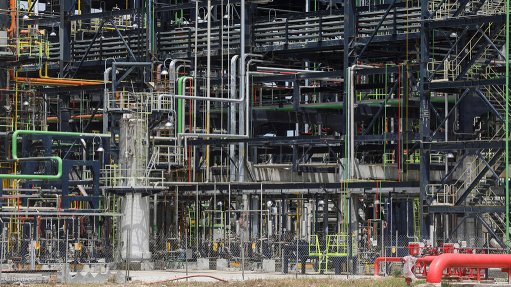The APC of the IRP
This article has been supplied.
By: Kobus Vermeulen - Direct Sales Executive, Process Automation at Schneider Electric
South Africa’s newest iteration of its Integrated Resource Plan (IRP 2023) serves as a strategic blueprint to ensure energy security, sustainability, and economic growth through a diversified energy mix.
However, whilst the proposal is clearly aligned with establishing a strong renewable posture, sensitive to global climate goals, it must also be implemented in a manner that does not impact grid stability.
One of the main challenges- in implementing the IRP- is ensuring grid stability while integrating renewable energy sources and balancing fluctuating energy demands. Advanced Process Control (APC) can play an important role in improving power plant efficiency whilst supporting the country’s transition to a low-carbon energy future.
Managing grid stability
Most South Africans understand how important grid stability is and its ability to provide uninterrupted energy supply that powers our daily lives and that of business, big or small. Its effective control and management are therefore paramount.
APC’s role goes beyond basic process controls by employing sophisticated algorithms and models to predict and adjust process behaviours. It is also this ability that makes it so compelling in power generation and resultant stability.
Fundamentally, due to APC’s dynamic nature that sees it continuously collecting and analysing operational data (from power generation systems), operators can make real-time adjustments that stabilise the grid.
APC enables power plants to finetune parameters like fuel flow, temperature, and pressure, ensuring that energy generation matches demand fluctuations in real-time. Furthermore, by automating rapid adjustments in power generation, APC helps mitigate disturbances such as sudden spikes or drops in energy demand. It smooths power generation ramp-up and ramp-down processes.
Plus, through process optimisation, it minimises waste, enhances fuel utilisation, and maximizes the efficiency of power generation assets.
IRP role
As mentioned, South Africa’s IRP places significant emphasis on increasing the share of renewables in the energy mix. Here, APC steps into the limelight, facilitating this transition by:
- Optimising energy management, which ensures that energy production processes are adjusted in real-time to accommodate fluctuations in renewable energy generation.
- Using data-driven models to anticipate variations in energy supply and demand and thus improving resource allocation.
- Load balancing - distributing electricity efficiently between renewable and conventional energy sources to maintain grid stability.
- Enabling a responsive power grid capable of adapting to the intermittent nature of solar and wind energy.
- Integration with energy storage - managing battery and other storage systems to ensure surplus renewable energy is efficiently stored and deployed when needed.
South Africa’s environmental goals
The IRP also considers the globe’s environmental targets and meets the country’s Nationally Determined Contributions (NDCs) under the Paris Agreement, promoting a transition to a low-carbon economy.
Again, APC significantly contributes to environmental sustainability by for example ensuring efficient fuel combustion, therefore, minimising production of harmful pollutants such as carbon monoxide and particulate matter.
Importantly, APC contributes to lower NOx (Nitrogen Oxides) which are compounds like nitric oxide (NO) and nitrogen dioxide (NO₂), and which r produced during high-temperature combustion. NOx contributes to air pollution and smog formation amongst others.
Similarly, it lowers SOx (Sulphur Oxides) which comprise sulphur dioxide (SO₂) and sulphur trioxide (SO₃), which occur from burning fuels containing sulphur. SOx is major contributor to acid rain and can harm ecosystems and human health.
In both instances, APC finetunes combustion parameters such as air-to-fuel ratios, to ensure more complete burning of fuels. This in turn reduces the formation of NOx and SOx during combustion.
There’s no doubt APC should play an integral role in not only today’s grid management and process but also South Africa’s steps toward reaching its IRP 2030 goals. It will undoubtedly assist in establishing a cleaner, stable and future-ready grid.
Article Enquiry
Email Article
Save Article
Feedback
To advertise email advertising@creamermedia.co.za or click here
Press Office
Announcements
What's On
Subscribe to improve your user experience...
Option 1 (equivalent of R125 a month):
Receive a weekly copy of Creamer Media's Engineering News & Mining Weekly magazine
(print copy for those in South Africa and e-magazine for those outside of South Africa)
Receive daily email newsletters
Access to full search results
Access archive of magazine back copies
Access to Projects in Progress
Access to ONE Research Report of your choice in PDF format
Option 2 (equivalent of R375 a month):
All benefits from Option 1
PLUS
Access to Creamer Media's Research Channel Africa for ALL Research Reports, in PDF format, on various industrial and mining sectors
including Electricity; Water; Energy Transition; Hydrogen; Roads, Rail and Ports; Coal; Gold; Platinum; Battery Metals; etc.
Already a subscriber?
Forgotten your password?
Receive weekly copy of Creamer Media's Engineering News & Mining Weekly magazine (print copy for those in South Africa and e-magazine for those outside of South Africa)
➕
Recieve daily email newsletters
➕
Access to full search results
➕
Access archive of magazine back copies
➕
Access to Projects in Progress
➕
Access to ONE Research Report of your choice in PDF format
RESEARCH CHANNEL AFRICA
R4500 (equivalent of R375 a month)
SUBSCRIBEAll benefits from Option 1
➕
Access to Creamer Media's Research Channel Africa for ALL Research Reports on various industrial and mining sectors, in PDF format, including on:
Electricity
➕
Water
➕
Energy Transition
➕
Hydrogen
➕
Roads, Rail and Ports
➕
Coal
➕
Gold
➕
Platinum
➕
Battery Metals
➕
etc.
Receive all benefits from Option 1 or Option 2 delivered to numerous people at your company
➕
Multiple User names and Passwords for simultaneous log-ins
➕
Intranet integration access to all in your organisation





















